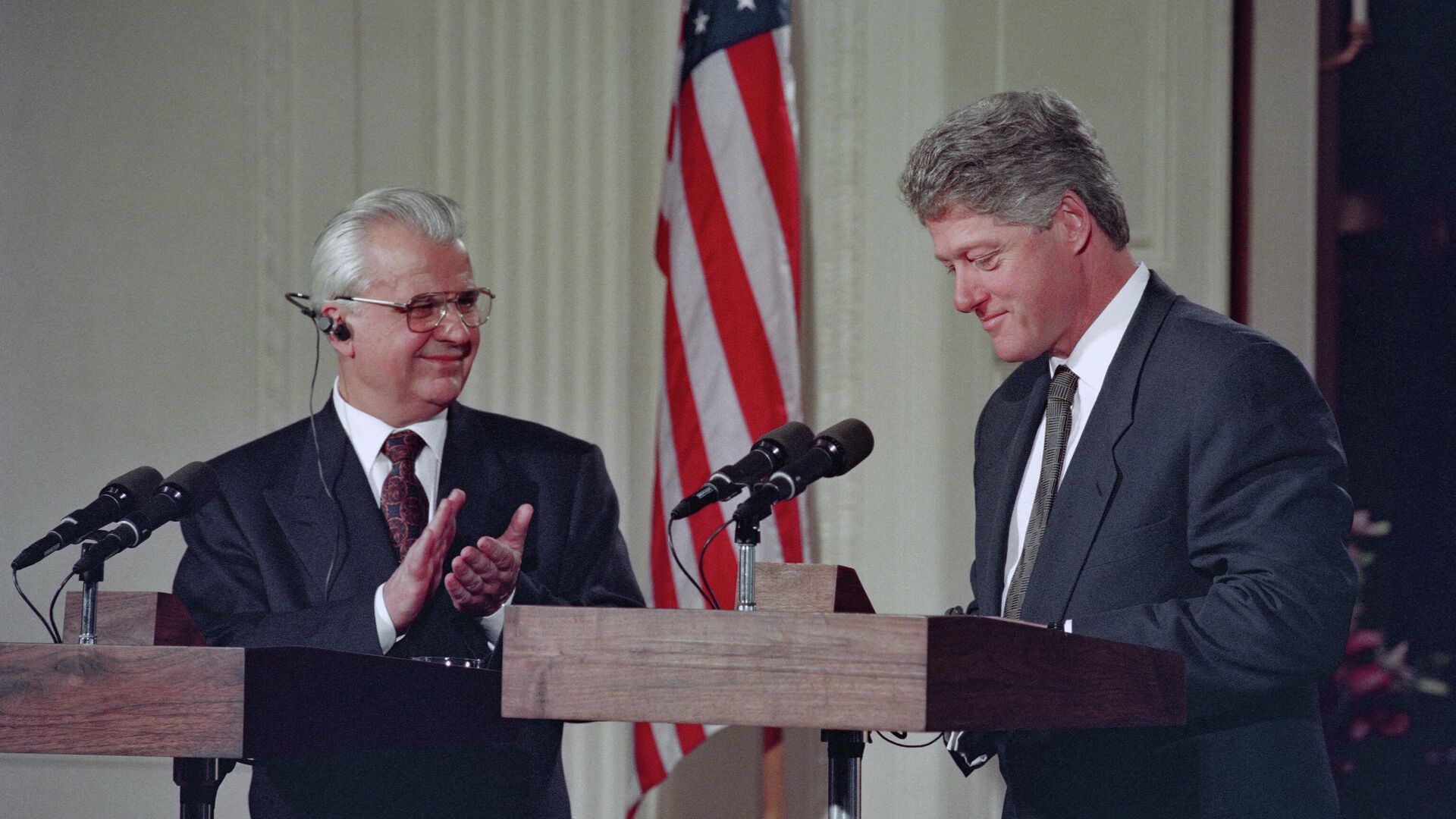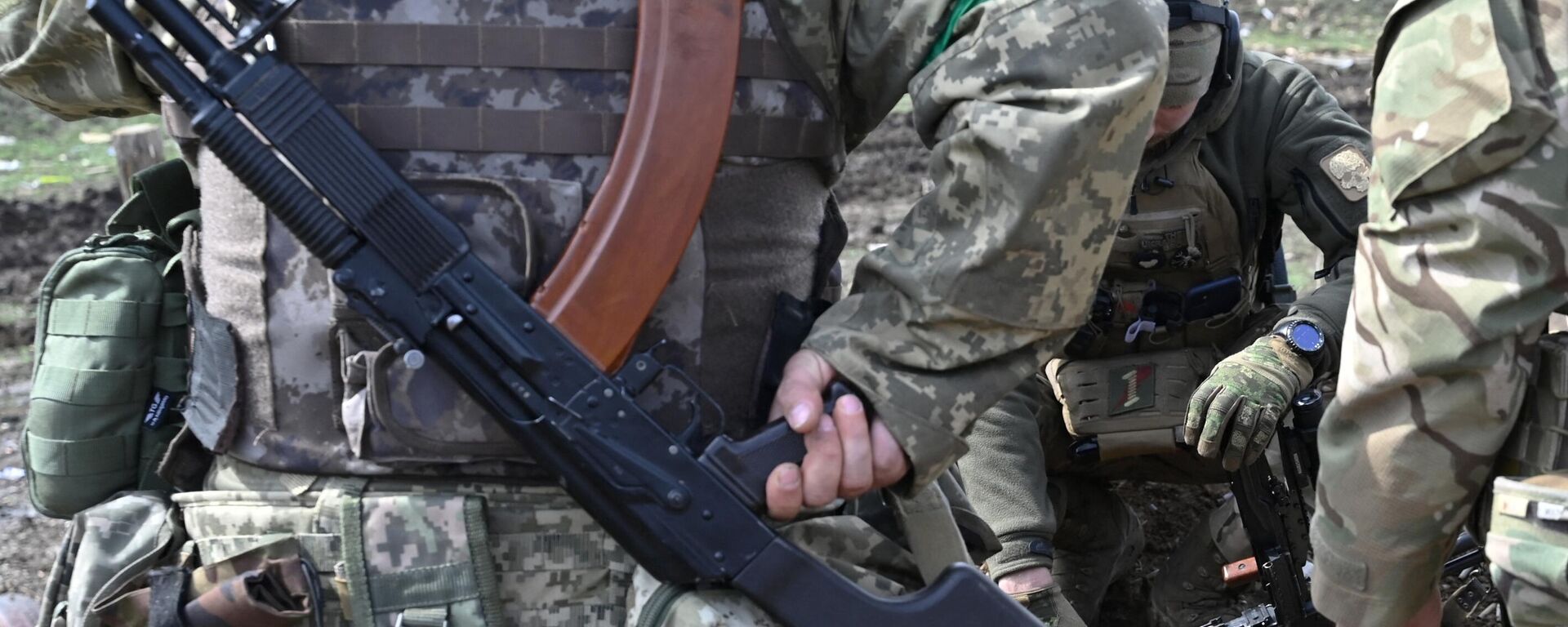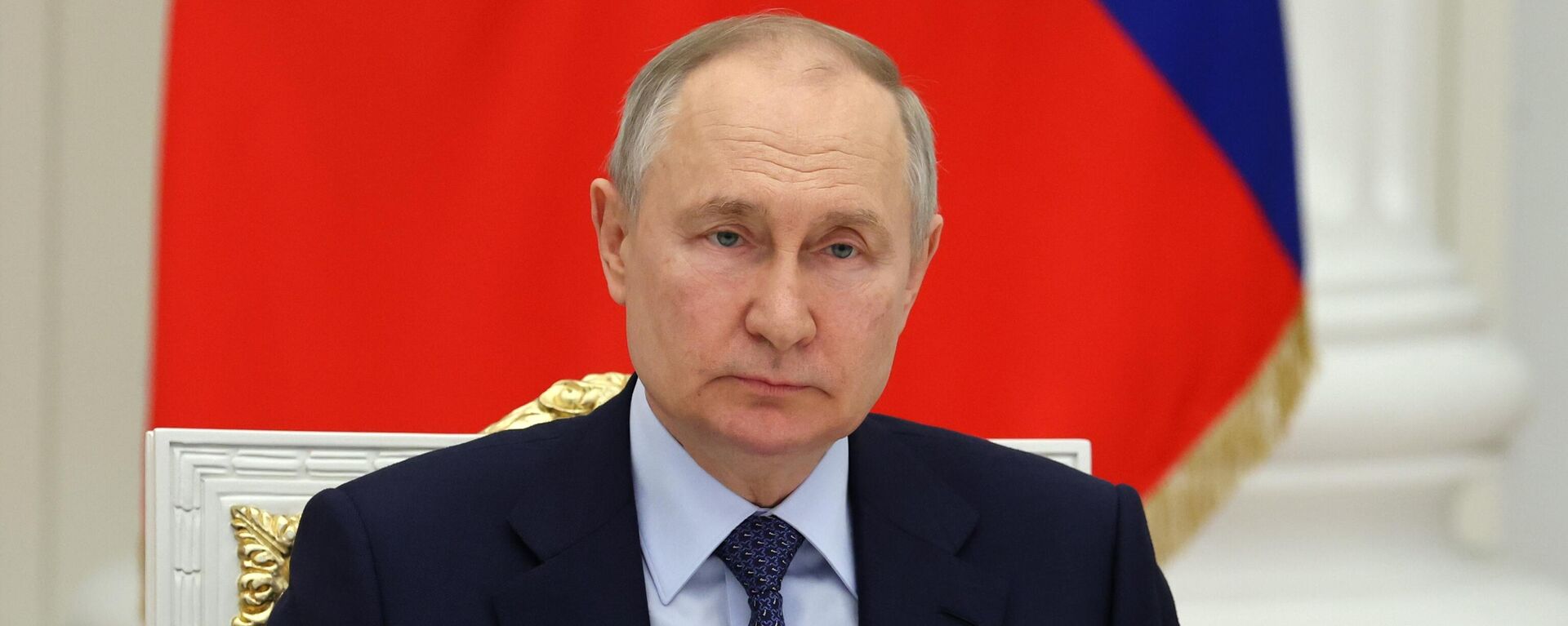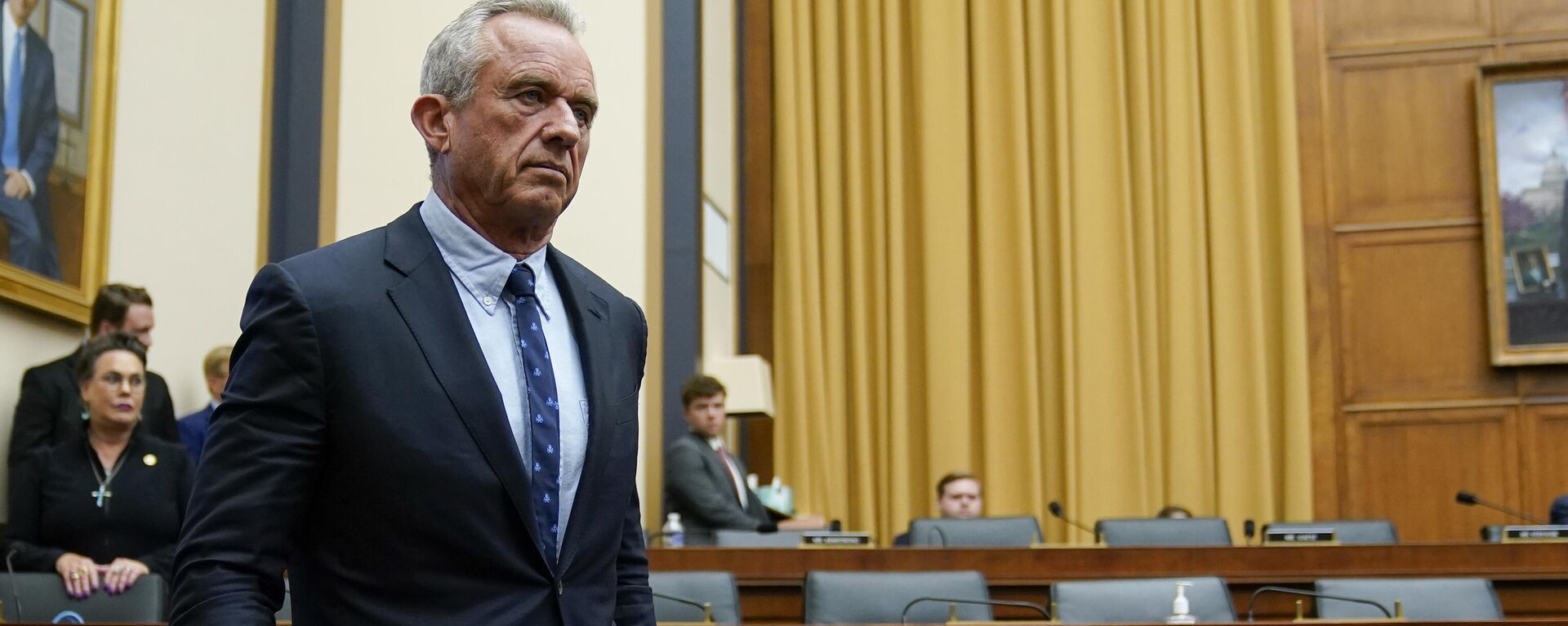https://sputnikglobe.com/20230824/how-ukraine-lost-its-independence-and-became-wests-hostage-1112865058.html
How Ukraine Lost Its Independence and Became West’s Hostage
How Ukraine Lost Its Independence and Became West’s Hostage
Sputnik International
On August 24, 1991, two days after the collapse of the anti-Gorbachev coup plot by communist hardliners in Moscow, Ukraine’s Supreme Soviet declared... 24.08.2023, Sputnik International
2023-08-24T18:25+0000
2023-08-24T18:25+0000
2023-08-24T18:56+0000
analysis
alexander mercouris
volodymyr zelensky
leonid kravchuk
ukraine
russia
kiev
nato
european union (eu)
https://cdn1.img.sputnikglobe.com/img/07e7/08/18/1112864854_0:161:3070:1888_1920x0_80_0_0_1a16353b8f3c8b447b2d895f567784f6.jpg
“The Verkhovna Rada of the Ukrainian Soviet Socialist Republic resolves that: Ukraine shall be declared an independent democratic state on August 24, 1991. Upon declaration of its independence, only its Constitution, laws, orders of the Government, and other legislative acts of the republic are valid on the territory of Ukraine. A republican referendum shall be organized on December 1, 1991 to confirm the act of declaration of independence.”This was the partial text of the Ukrainian act of independence, adopted into law by Communist Party boss-turned-first president of Ukraine, Leonid Kravchuk.Just a little over five months earlier, in the status referendum of March 17, 1991, Ukrainians voted overwhelmingly (71.5 percent to 28.5 percent) in favor of saving the USSR. By December, 92.25 percent favored independence, with only 7.75 percent opposed.Ukraine entered the 1990s with perhaps the most enviable status among all the former Soviet republics, starting out with an advanced industrial and agricultural economy comparable in size and complexity in Europe only to Germany, France, and the UK. Ukraine boasted a vast industrial sector ranging from heavy machine-building to aircraft manufacturing and rocketry, and some of the richest farmland on the planet. Unlike Russia, which agreed to shoulder responsibility for paying off the Soviet Union’s $100 billion debt, Ukraine gained independence with an economic clean slate, with an unheard of $0 in foreign debt in December 1991.Three decades on, the country’s socio-economic status is nothing short of catastrophic, with Ukraine now one of the poorest and most corrupt countries in Europe (even before 2022), its economy almost entirely dependent on Western economic aid, and the nation facing an unprecedented demographic crisis (with a current population of 36.7 million, down from 43.5 million in 2021, and a peak population of 52 million in 1991).Politically as well, contemporary Ukraine’s fate is unenviable, with the Volodymyr Zelensky administration cancelling elections scheduled for 2024, banning opposition parties and imprisoning political opponents “linked to Russia,” and targeting the Ukrainian Orthodox Church, again over suspected "Russian links." His predecessors’ record was little better, with the post-Maidan coup authorities disappearing dozens of political opponents, banning the largest pro-Russian opposition party, and unleashing a wave of terror across the country’s southeast after coming to power in 2014.Ukraine’s Independence CrisisIn the 32 years, seven presidential elections, and two Western-backed color revolutions since August 24, 1991, Ukraine, in its gradual course to become more independent of its Russian "big brothers," has curiously become more and more dependent on the West, to the point of risking the complete loss of sovereignty.Alexander Mercouris, veteran lawyer and geopolitical analyst, says there are a number of ways this has been manifested, from the military sphere to Kiev’s ability to engage in independent diplomacy.“The answer straightforwardly, is no,” Mercouris told Sputnik, when asked whether Ukraine is sovereign in its decision-making. As evidence, the observer pointed to a report in US media this week citing informed US officials that senior NATO officials, including Pentagon Joint Chiefs Chairman Mark Milley, NATO Supreme Allied Commander Europe Christopher Cavoli, and British Chief of Defense Staff Tony Radakin had met with Ukrainian Commander-in-Chief Valerii Zaluzhnyi and ordered him to change tactics in Ukraine’s faltering counteroffensive.Citing another example, the analyst pointed to US discontent with Zelensky after he reached out to President Xi Jinping of China for telephone talks this past April, several months after Beijing rolled out its 12-point peace plan.“He didn’t inform the United States in advance. Why would he? He is, after all, the president of Ukraine,” Mercouris noted. But “it turned out that the United States was not at all happy with the fact that President Zelensky was, on his own initiative, speaking to the president of China. The United States again made it very clear that they were not happy about the fact that President Zelensky, on behalf of Ukraine, was at least contemplating the possibility of receiving a Chinese mediator or emissary. And in effect, the United States has been able to block any move by Ukraine to pursue any kind of diplomatic opening to China. So Ukraine once again has been forced into line on its foreign policy relations, despite the fact that [it] has had historically good relations with China and very strong economic relations with China.”When Did Ukraine Lose Its Sovereignty?While Ukraine has moved gradually toward losing its status as an independent power over the decades, with the process accelerating following the color-coded coups of 2004 and 2014, Mercouris thinks that the singular “moment” when Kiev can be truly said to have “lost its sovereignty” can be pinpointed to the collapse of the Istanbul peace talks with Russia in April 2022.“An agreement was almost reached by both sides, by the Ukrainians and by the Russians. It basically said that Ukraine would remain outside NATO. It made certain provisions for Ukraine to be supplied with security guarantees. It also arranged for a kind of dilution of Ukrainian claims to Crimea and Donbass. So there was an awful lot to sort out, but that was the moment when Ukraine had the choice. It could have continued with those negotiations with the Russians. It could have pursued them and reached an agreement. Instead, what it did was it went along with the pressure that the United States and Britain imposed upon it,” Mercouris stressed.April 2022, Mercouris noted, “was the moment when the Ukrainian leaders made a fatal choice which signed away the independence and sovereignty of their own country. And they’ve been trapped within ever since. And there is really no way, as far as I can see, that they can escape from it.”The consequences of this choice have been cruel and unforgiving, with hundreds of thousands of Ukrainian troops, and tens of thousands of civilians, including the long-suffering residents of Donbass, killed in fighting, including over 43,000 Ukrainian troops in the summer counteroffensive alone.Part of the tragedy of the situation, in Mercouris’ view, is that the West doesn’t really even want Ukraine in its institutions, instead giving them the fig leaf “promise of one day…joining” so that Kiev continues to “distance themselves from Russia and keep going this conflict with Russia.”Instead, the West has been able to string Kiev along with promises of membership in Western institutions, and “will go on doing it for as long as it is in their interests to do so, which will probably be always. So it’s a game that Ukraine has been very cynically drawn into and which it is now trapped inside,” Mercouris noted.Path Toward True IndependenceMercouris believes the only path toward a genuine degree of Ukrainian independence, and even simply national “survival,” lies in the pursuit of peace.Unfortunately, Mercouris noted, Ukraine’s current crop of leaders seems uninterested in or unable to pursue this sort of policy, perhaps aware that it would threaten their hold on power.“One senses that if they were to confront their people now with that kind of choice, the political leaders in Kiev would not survive. Ukrainians would say ‘well, why did you lead us on this path toward the West if you are telling us that it has ended for us in disaster.’ So rather than do that, unfortunately, they are continuing the war. And by continuing the war, they are not just putting in jeopardy Ukraine’s independence, but the prospects for its continued existence beyond the war itself. So this is a tragedy. It is a tragedy for a country and it is the product of bad decisions made in many countries. But I have to say also in Kiev itself. And I have to say this also…that Ukrainian politicians, the political leaders who gained power in Ukraine after it did achieve independence were never up to the stature of meeting the challenges that creating [and] building a new country actually demanded of them. So they made the wrong decisions. And Ukraine today is paying the price,” Mercouris summed up.
https://sputnikglobe.com/20211224/30th-anniversary-of-the-ussrs-collapse-ukraine-ruined-chances-for-a-viable-cis-archives-reveal-1091766435.html
https://sputnikglobe.com/20230815/ukrainian-police-stage-attack-on-kiev-pechersk-lavra---ukraine-orthodox-church-1112601825.html
https://sputnikglobe.com/20230430/chinas-ukraine-peace-plan-platform-to-start-process-of-political-settlement-of-ukraine-conflict-1109984415.html
https://sputnikglobe.com/20230617/putin-kiev-threw-possible-russia-ukraine-settlement-deal-into-dustbin-of-history-1111251774.html
https://sputnikglobe.com/20230726/west-torpedoed-ukraine-peace-because-we-want-war-with-russia---rfk-jr-1112150461.html
https://sputnikglobe.com/20230210/putins-2007-munich-speech-stark-prophecy-or-reasonable-warning-that-fell-on-deaf-ears-1107315834.html
ukraine
russia
kiev
Sputnik International
feedback@sputniknews.com
+74956456601
MIA „Rossiya Segodnya“
2023
News
en_EN
Sputnik International
feedback@sputniknews.com
+74956456601
MIA „Rossiya Segodnya“
Sputnik International
feedback@sputniknews.com
+74956456601
MIA „Rossiya Segodnya“
alexander mercouris, volodymyr zelensky, leonid kravchuk, ukraine, russia, kiev, nato, european union (eu)
alexander mercouris, volodymyr zelensky, leonid kravchuk, ukraine, russia, kiev, nato, european union (eu)
How Ukraine Lost Its Independence and Became West’s Hostage
18:25 GMT 24.08.2023 (Updated: 18:56 GMT 24.08.2023) On August 24, 1991, two days after the collapse of the anti-Gorbachev coup plot by communist hardliners in Moscow, Ukraine’s Supreme Soviet declared independence from the USSR. 32 years on, the country has transformed into a Western puppet state. Sputnik reached out to political analyst Alexander Mercouris to find out how and why this happened.
“The Verkhovna Rada of the Ukrainian Soviet Socialist Republic resolves that: Ukraine shall be declared an independent democratic state on August 24, 1991. Upon declaration of its independence, only its Constitution, laws, orders of the Government, and other legislative acts of the republic are valid on the territory of Ukraine. A republican referendum shall be organized on December 1, 1991 to confirm the act of declaration of independence.”
This was the partial
text of the Ukrainian act of independence, adopted into law by Communist Party boss-turned-first president of Ukraine, Leonid Kravchuk.
Just a little over five months earlier, in the status referendum of March 17, 1991, Ukrainians voted overwhelmingly (71.5 percent to 28.5 percent) in favor of saving the USSR. By December, 92.25 percent favored independence, with only 7.75 percent opposed.
Ukraine entered the 1990s with perhaps the most enviable status among all the former Soviet republics, starting out with an advanced industrial and agricultural economy comparable in size and complexity in Europe only to Germany, France, and the UK. Ukraine boasted a vast industrial sector ranging from heavy machine-building to aircraft manufacturing and rocketry, and some of the richest farmland on the planet. Unlike Russia, which agreed to shoulder responsibility for paying off the Soviet Union’s $100 billion debt, Ukraine gained independence with an economic clean slate, with an unheard of
$0 in foreign debt in December 1991.
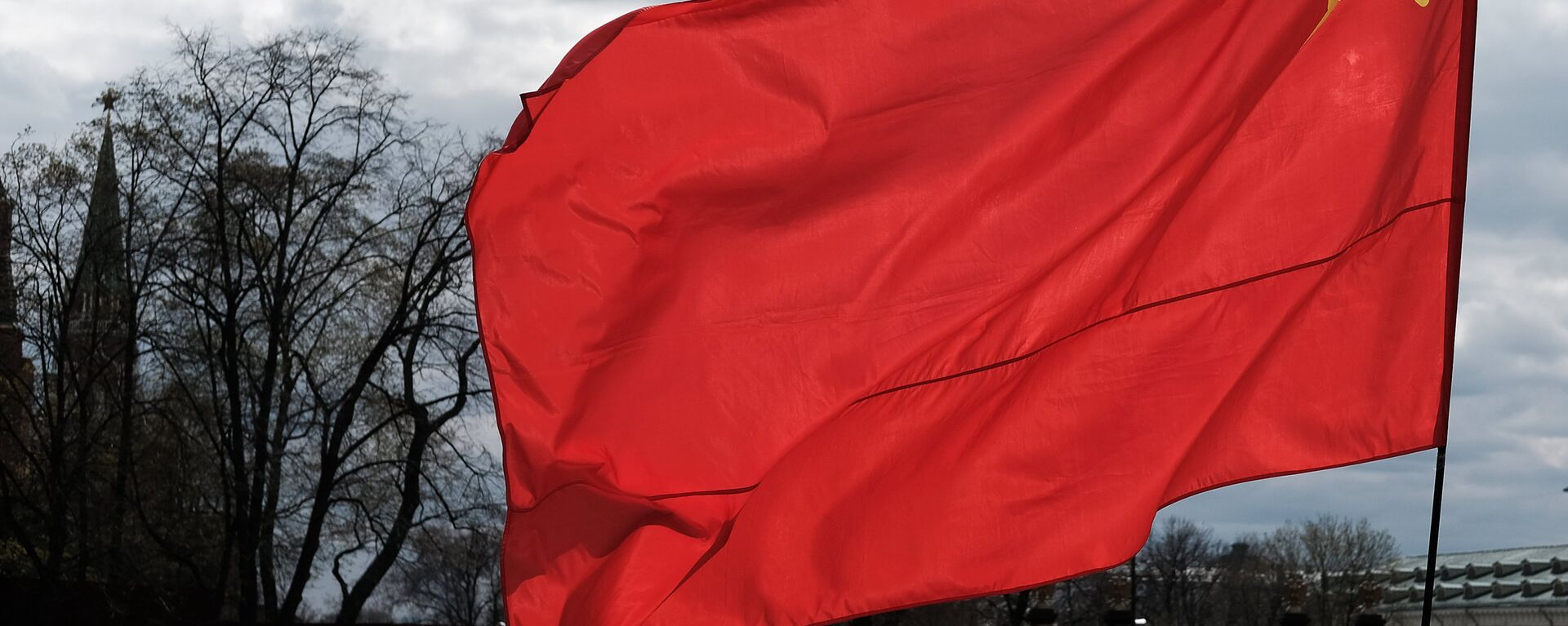
24 December 2021, 05:56 GMT
Three decades on, the country’s socio-economic status is nothing short of catastrophic, with Ukraine now
one of the poorest and
most corrupt countries in Europe (even before 2022), its economy almost
entirely dependent on Western economic aid, and the nation facing an unprecedented demographic crisis (with a current population of
36.7 million, down from 43.5 million in 2021, and a peak population of 52 million in 1991).
Politically as well, contemporary Ukraine’s fate is unenviable, with the Volodymyr Zelensky administration
cancelling elections scheduled for 2024,
banning opposition parties and
imprisoning political opponents “linked to Russia,” and
targeting the Ukrainian Orthodox Church, again over suspected "Russian links." His predecessors’ record was little better, with the post-Maidan coup authorities
disappearing dozens of political opponents, banning the largest pro-Russian opposition party, and unleashing a
wave of terror across the country’s southeast after coming to power in 2014.
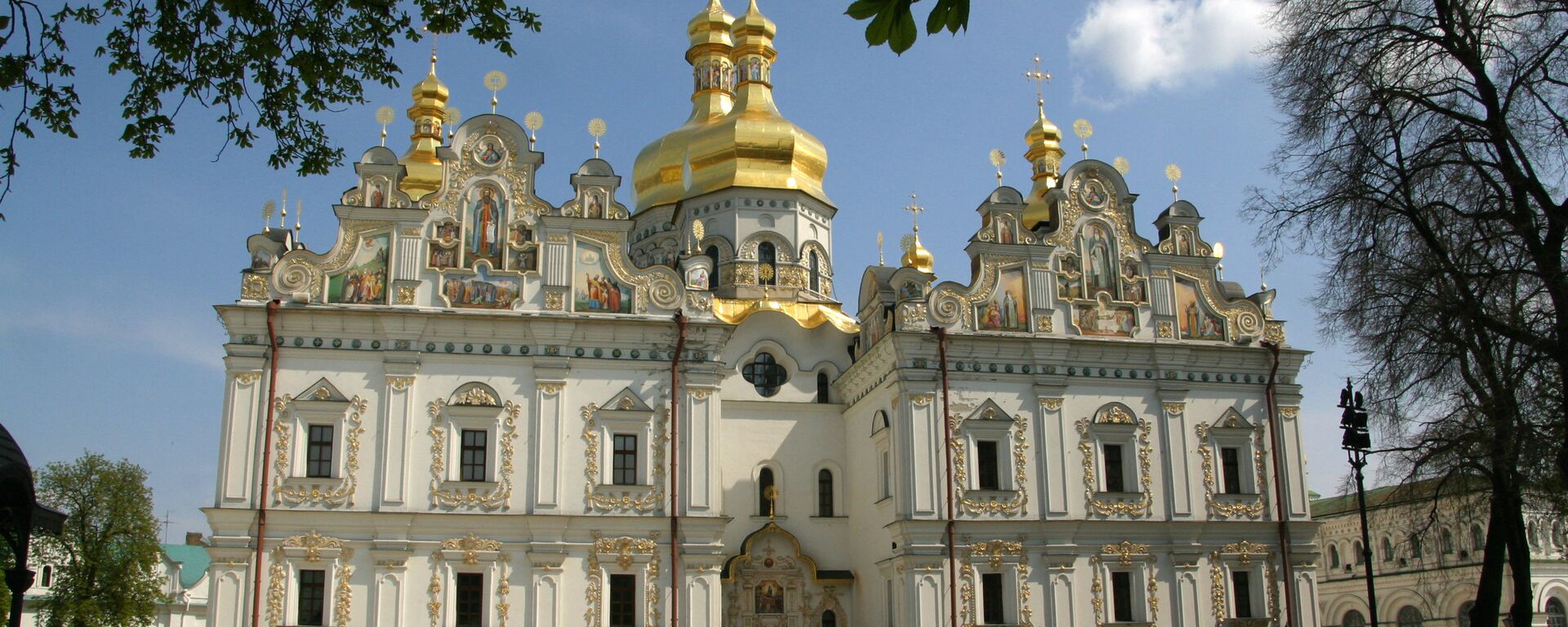
15 August 2023, 06:34 GMT
Ukraine’s Independence Crisis
In the 32 years, seven presidential elections, and two Western-backed color revolutions since August 24, 1991, Ukraine, in its gradual course to become more independent of its Russian "big brothers," has curiously become more and more dependent on the West, to the point of risking the complete loss of sovereignty.
Alexander Mercouris, veteran lawyer and geopolitical analyst, says there are a number of ways this has been manifested, from the military sphere to Kiev’s ability to engage in independent diplomacy.
“The answer straightforwardly, is no,” Mercouris told Sputnik, when asked whether Ukraine is sovereign in its decision-making. As evidence, the observer pointed to a
report in US media this week citing informed US officials that senior NATO officials, including Pentagon Joint Chiefs Chairman Mark Milley, NATO Supreme Allied Commander Europe Christopher Cavoli, and British Chief of Defense Staff Tony Radakin had met with Ukrainian Commander-in-Chief Valerii Zaluzhnyi and ordered him to change tactics in Ukraine’s faltering counteroffensive.
“General Zaluzhnyi apparently had no choice but to agree. And this is a case of a country at war. It’s supposed to be defending itself. And yet we see that on this essential issue, this absolutely existential issue for a country, its military strategy is being decided for it by third parties, by the United States and Britain. And that tells us who really is in charge in Ukraine,” Mercouris said.
Citing another example, the analyst pointed to US discontent with Zelensky after he reached out to President Xi Jinping of China for telephone talks this past April, several months after Beijing rolled out its
12-point peace plan.
“He didn’t inform the United States in advance. Why would he? He is, after all, the president of Ukraine,” Mercouris noted. But “it turned out that the United States was not at all happy with the fact that President Zelensky was, on his own initiative, speaking to the president of China. The United States again made it very clear that they were not happy about the fact that President Zelensky, on behalf of Ukraine, was at least contemplating the possibility of receiving a Chinese mediator or emissary. And in effect, the United States has been able to block any move by Ukraine to pursue any kind of diplomatic opening to China. So Ukraine once again has been forced into line on its foreign policy relations, despite the fact that [it] has had historically good relations with China and very strong economic relations with China.”
When Did Ukraine Lose Its Sovereignty?
While Ukraine has moved gradually toward losing its status as an independent power over the decades, with the process accelerating following the color-coded coups of 2004 and 2014, Mercouris thinks that the singular “moment” when Kiev can be truly said to have “lost its sovereignty” can be pinpointed to the collapse of the Istanbul peace talks with Russia in April 2022.
“An agreement was almost reached by both sides, by the Ukrainians and by the Russians. It basically said that Ukraine would remain outside NATO. It made certain provisions for Ukraine to be supplied with security guarantees. It also arranged for a kind of dilution of Ukrainian claims to Crimea and Donbass. So there was an awful lot to sort out, but that was the moment when Ukraine had the choice. It could have continued with those negotiations with the Russians. It could have pursued them and reached an agreement. Instead, what it did was it went along with the pressure that the United States and Britain imposed upon it,” Mercouris stressed.
“The result,” the observer noted, was Ukraine pulling out of the talks, ruining “the last chance of repairing its relations with Russia while accepting what it was told would be unlimited Western aid. And from that moment onward, Ukraine has, in effect, been a prisoner, a hostage of US and British policy decisions.”
April 2022, Mercouris noted, “was the moment when the Ukrainian leaders made a fatal choice which signed away the independence and sovereignty of their own country. And they’ve been trapped within ever since. And there is really no way, as far as I can see, that they can escape from it.”
The consequences of this choice have been cruel and unforgiving, with hundreds of thousands of Ukrainian troops, and tens of thousands of civilians, including the long-suffering residents of Donbass, killed in fighting, including over 43,000 Ukrainian troops in the summer counteroffensive alone.
Part of the tragedy of the situation, in Mercouris’ view, is that the West doesn’t really even want Ukraine in its institutions, instead giving them the fig leaf “promise of one day…joining” so that Kiev continues to “distance themselves from Russia and keep going this conflict with Russia.”
“If the Western powers came along and simply said to Ukraine, ‘there’s never any possibility of you joining the EU, that isn’t really on the agenda at all, and there’s no possibility of joining NATO,’ then of course, the Ukrainians might at that point start to take a more realistic position about their own prospects, and that might push them toward some kind of reconciliation with the Russians,” the observer said.
Instead, the West has been able to string Kiev along with promises of membership in Western institutions, and “will go on doing it for as long as it is in their interests to do so, which will probably be always. So it’s a game that Ukraine has been very cynically drawn into and which it is now trapped inside,” Mercouris noted.
Path Toward True Independence
Mercouris believes the only path toward a genuine degree of Ukrainian independence, and even simply national “survival,” lies in the pursuit of peace.
“In other words, by putting aside all these ideas of joining NATO and joining the EU, accepting its geographical position between Russia and Europe, making the most of that which you can do, and achieving peace with Russia.” That, “if your real concerns is the best interests of Ukraine and Ukrainian independence, is what Ukraine ought to be doing,” the observer stressed.
Unfortunately, Mercouris noted, Ukraine’s current crop of leaders seems uninterested in or unable to pursue this sort of policy, perhaps aware that it would threaten their hold on power.
“One senses that if they were to confront their people now with that kind of choice, the political leaders in Kiev would not survive. Ukrainians would say ‘well, why did you lead us on this path toward the West if you are telling us that it has ended for us in disaster.’ So rather than do that, unfortunately, they are continuing the war. And by continuing the war, they are not just putting in jeopardy Ukraine’s independence, but the prospects for its continued existence beyond the war itself. So this is a tragedy. It is a tragedy for a country and it is the product of bad decisions made in many countries. But I have to say also in Kiev itself. And I have to say this also…that Ukrainian politicians, the political leaders who gained power in Ukraine after it did achieve independence were never up to the stature of meeting the challenges that creating [and] building a new country actually demanded of them. So they made the wrong decisions. And Ukraine today is paying the price,” Mercouris summed up.
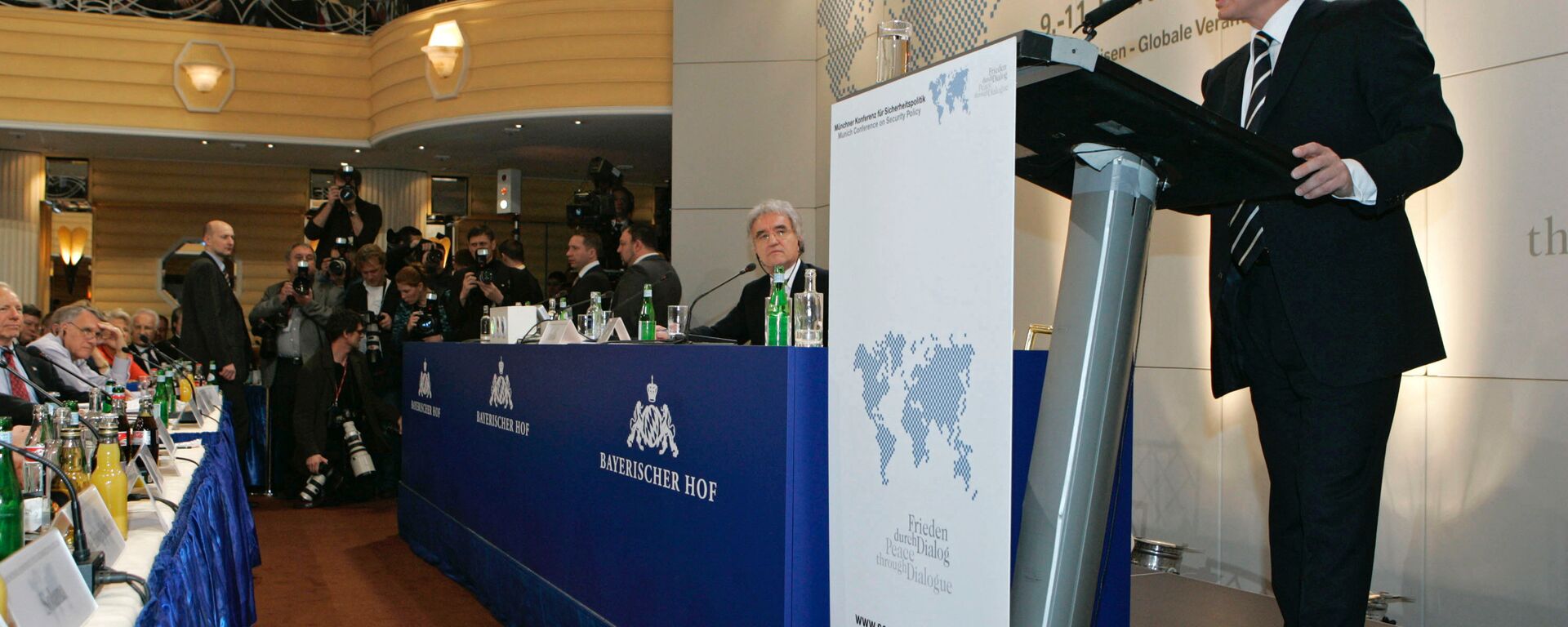
10 February 2023, 12:26 GMT
